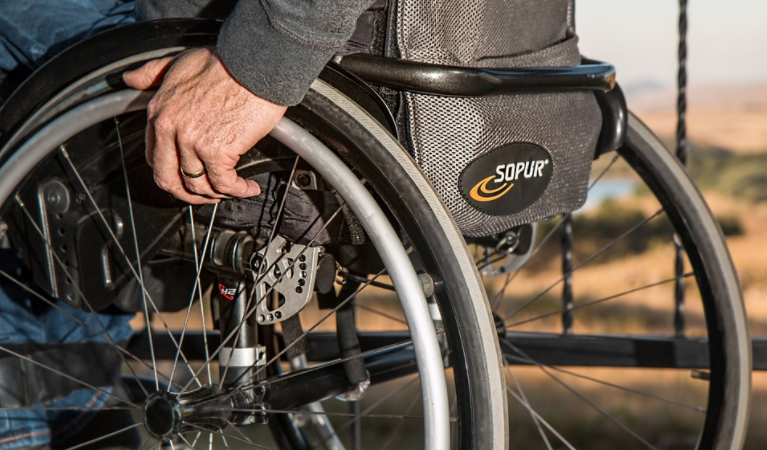Negative attitudes among non-disabled people are contributing to a loneliness epidemic.

Over half of nearly 13 million disabled people in the UK feel isolated and lonely in the face of negative public attitudes towards them, a new report for the Jo Cox Commission on Loneliness has found.
A quarter of non-disabled people surveyed by the charity Sense said they actively avoided conversations with disabled people, most citing “fear of causing offence”, “feeling uncomfortable” and “not knowing what to talk about” as why they’d avoid contact and conversations.
Only half of non-disabled respondents said they felt they had anything in common with disabled people, the survey with a sample of 2,000 found.
Labour MP Rachel Reeves, who co-chairs the Jo Cox commission on loneliness, said reducing misconceptions about disability was key to addressing this ‘epidemic’ of loneliness:
“Increasing awareness of different conditions and battling misconceptions about disability are both important steps to help reduce loneliness amongst disabled people.”
The numbers are disproportionately high amongst the young – 75 per cent of disabled people under the age of 24 said they suffered loneliness; whilst their non-disabled counterparts were twice as likely to have avoided conversations with them.
A quarter of young people could not recall the last time they’d met a disabled person.
Seema Kennedy MP, co-chair of the Jo Cox Commission on loneliness said:
“Jo Cox strongly believed that ‘we have far more in common than that which divides us’ … we would all benefit from seeking to create connections with others by focusing on our similarities and shared interests rather than our differences.”
Deputy CEO of Sense Richard Kramer said that ‘outdated attitudes’ were to blame for the epidemic of loneliness amongst disabled people; shared interests lying just under the surface of these dividing attitudes:
“Better understanding of disability and a shift in societal awareness are a key step in allowing disabled people to play a full part in society with the same opportunities to make connections as everybody else.”
Every disability is different, says Sense, however common responses can be found: opening up the conversation about disability is key.
Over the next month the charity will publishing joint research with other disability charities on additional steps necessary to tackle loneliness.
To reach hundreds of thousands of new readers and to make the biggest impact we can in the next general election, we need to grow our donor base substantially.
That's why in 2024, we are seeking to generate 150 additional regular donors to support Left Foot Forward's work.
We still need another 124 people to donate to hit the target. You can help. Donate today.




2 Responses to “Half of disabled people in UK are lonely – Jo Cox Commission”
Russell Simpson
Surprise, Surprise… I haven’t seen many changes in my lifetime apart from our human rights to be able to use the toilet and park in a disabled bay if there are any left… we are still pend in like animals when we go to concerts… it wouldn’t happen to any one else!
Samuel Miller (@Hephaestus7)
Since 2012, I’ve been reporting voluntarily to the UN on the welfare crisis impacting Britain’s sick and disabled.
Yes, loneliness is a serious issue for disabled people. But Labour needs to make the reversal of the life-threatening ESA WRAG cuts a major priority. These pernicious cuts were mentioned in an alternate Queen’s speech by Debbie Abrahams, Shadow Secretary of State for Work and Pensions, but needed to be tabled with the amendments to the main Queen’s speech.
There have been several government policy climbdowns, yet sick and disabled people are being asked to take a back seat to others. Not only is this unfair, it will push vulnerable people to the brink of suicide—and beyond.
Frank Field, the Chair of Work and Pensions Committee, was so alarmed by these pernicious cuts that he wrote this urgent letter to the DWP’s Penny Mordaunt:
https://drive.google.com/file/d/0B4DDIATl4FpJWTVmSGZtUTJtcmM/view?usp=sharing
Montreal, Canada